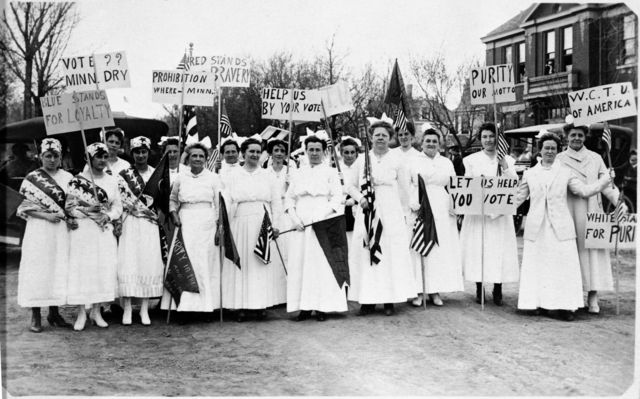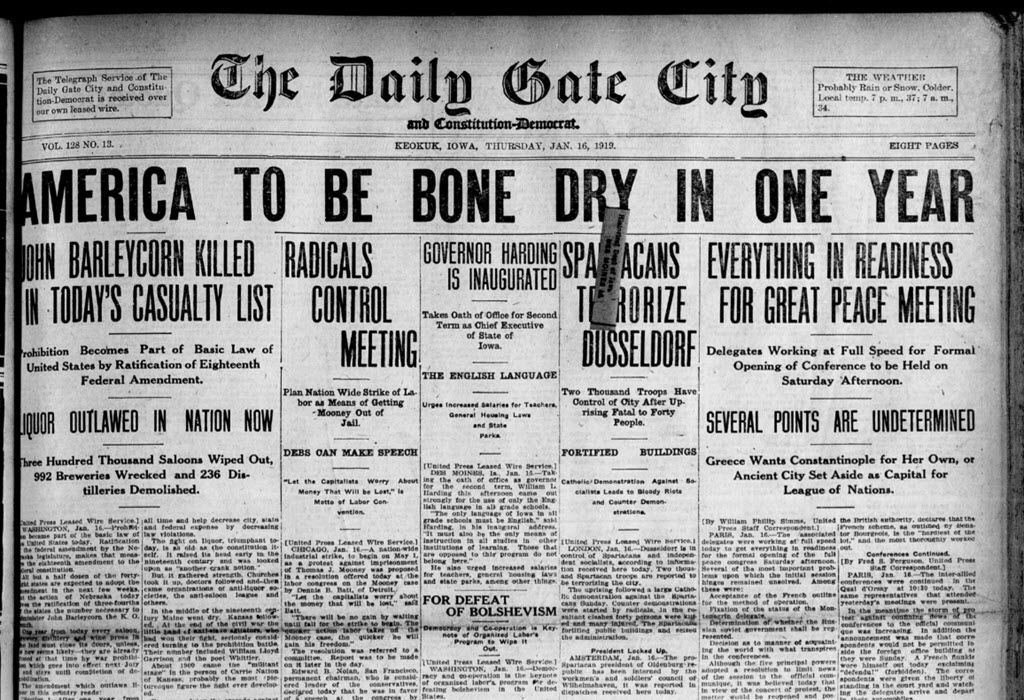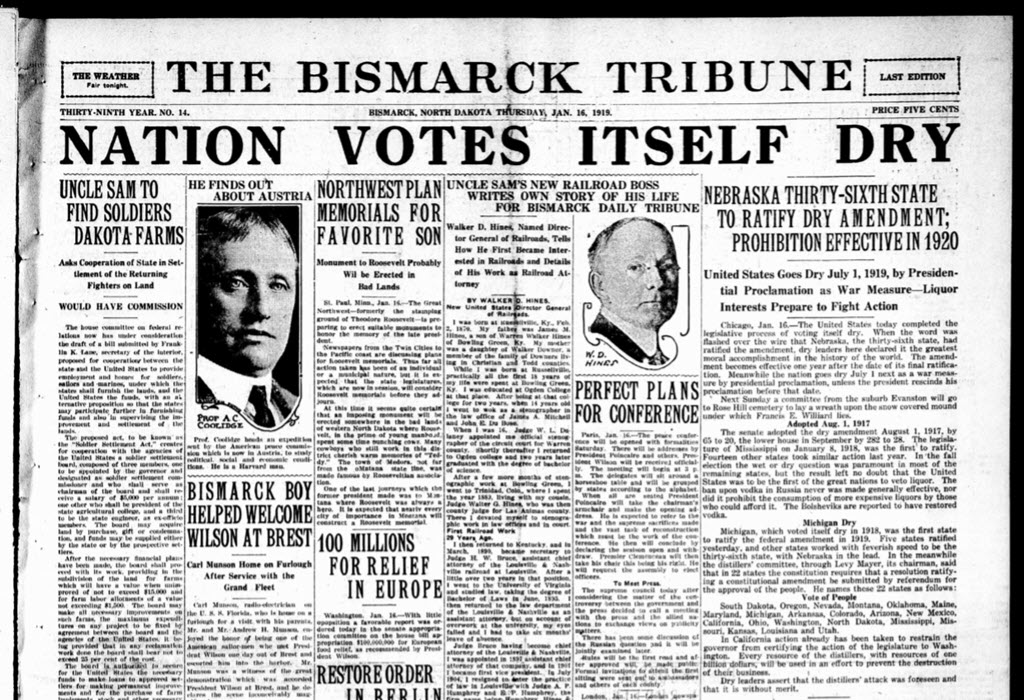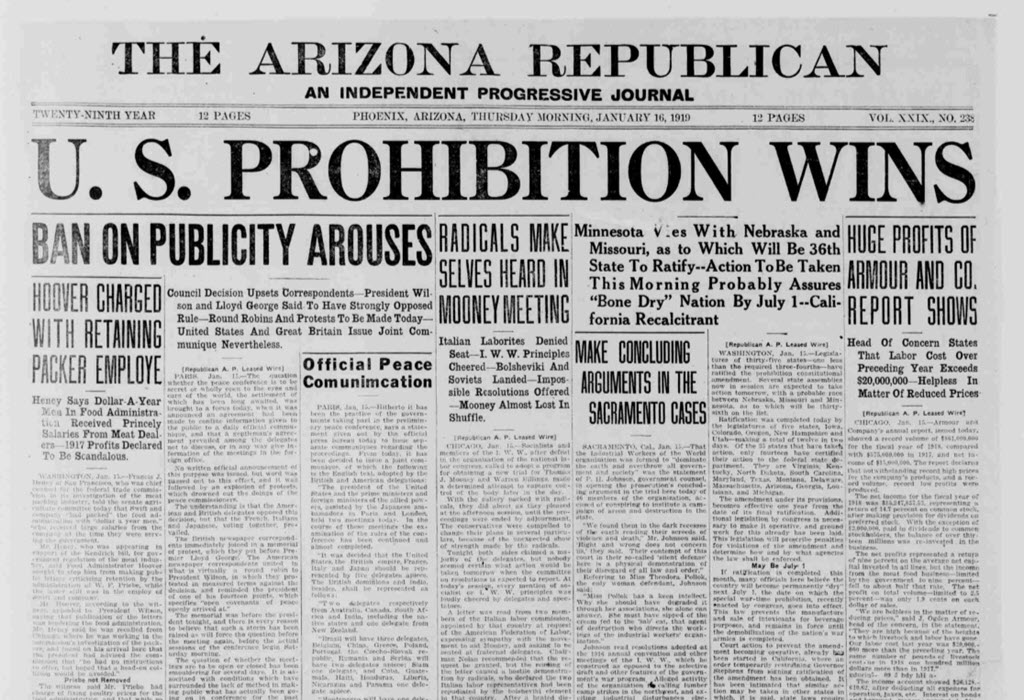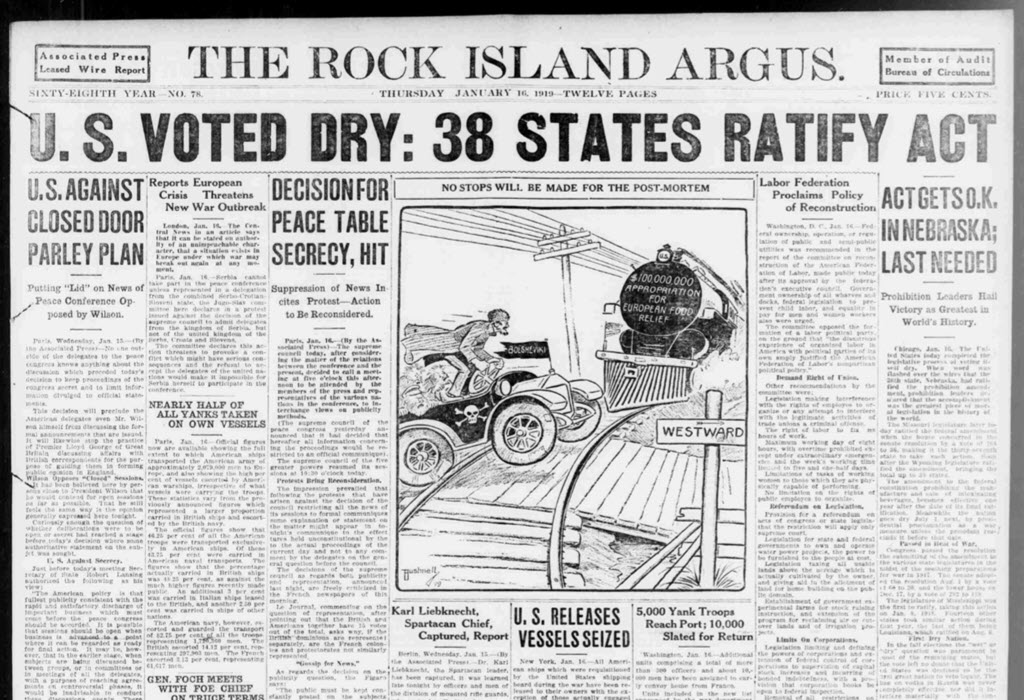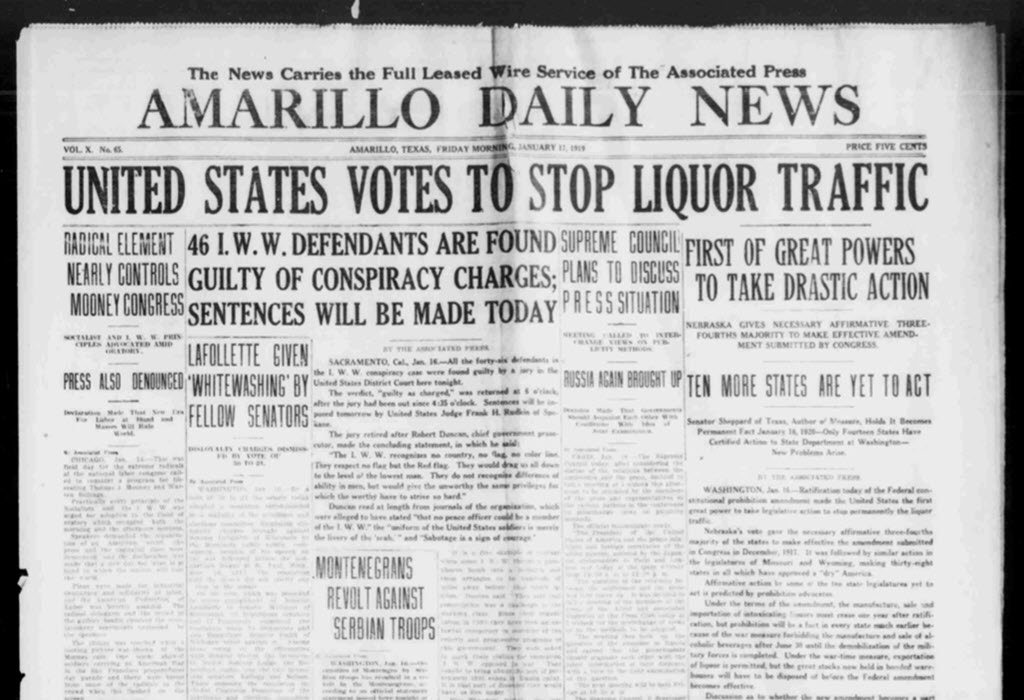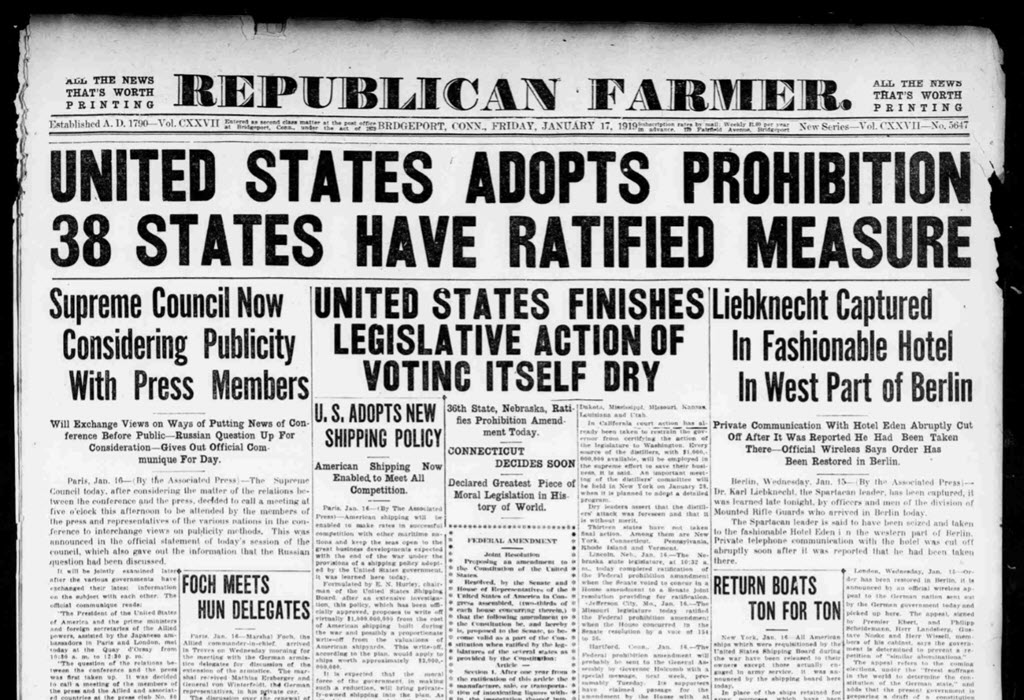Prohibition caused a significant change in everyday life in American history because it led to the rise of organized crime, corruption of public officials, and widespread disrespect for the law. Prohibition was meant to improve the lives of Americans and to protect them from the negative effects of alcohol abuse
Prohibition officially went into effect in January 1920, it didn't change America’s desire to drink alcoholic beverages, but instead created a large surge of organized crime. People smuggled alcohol into the country or made it themselves. Mobs worked their alcohol distilleries and paid officers and politicians to disregard their illegal work. Mobsters bootlegged alcohol into the United States from Mexico and Canada. Regard for the law dropped dramatically. Supporters of Prohibition were called “Drys”, and their opponents were called “Wets”. One influential person in the Prohibition era was Al Capone. He is one of the most infamous criminals of all time. Government agents worked endlessly to stop the transportation of illegal alcohol. Unfortunately, the public’s need for alcohol was too strong. Secret drinking establishments called speakeasies attracted impatient “Wets” who desired for alcohol. Prohibition caused distress in America’s society, and America just couldn't reach a consensus when it came to the ban of alcohol and it wasn't repealed until 1933.

